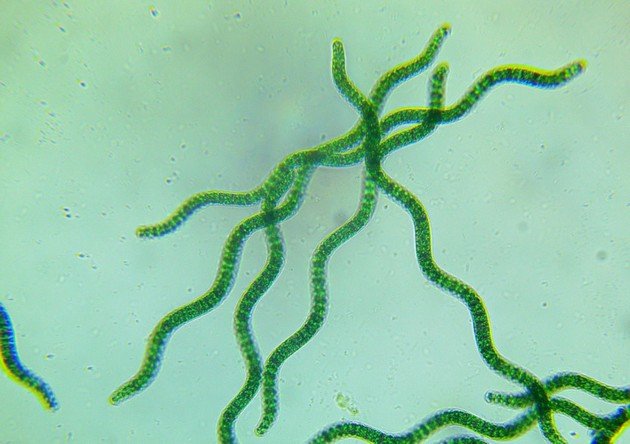Spirulina is an algae rich in iron, calcium, magnesium and vitamins and can be an excellent dietary supplement. But before you start using it, it is important to know some things, especially if you are pregnant or have any (chronic) health problems.
For years, in the world and in our country, spirulina has been advertised as a superfood with numerous health benefits.
Spirulina is rich in vitamins as well as protein, so this makes it an excellent dietary supplement, especially for people who are vegetarians or vegans.
A little more about this superfood and whether you should include it in your diet:
What is spirulina?
Spirulina is an algae and, according to WebMD , is believed to be one of the oldest life forms on Earth.
Algae is known to have been used by the Aztecs as a cure for various ailments, while modern research shows that it has the potential to fight certain ailments.
Spirulina is sold in the form of capsules and pills. It is also available in powder form, which, due to its bitter taste, many prefer to add to juices, smoothies, oatmeal, and the like.

What nutrients does spirulina have?
One tablespoon of spirulina powder contains :
- Proteins – 4.02g
- Calcium – 8.4 mg
- Iron – 2mg
- Magnesium – 13.6mg
- Phosphorus – 8.26mg
- Potassium – 95.2 mg
- Sodium – 73.5mg
- Copper – 0.427mg
- Vitamin C – 0.707mg
- Vitamin B6 – 0.025mg
Spirulina also contains thiamin, niacin, folic acid, as well as small amounts of vitamins A and K.
At the same time, there are several types of antioxidants.

What are the health benefits of spirulina?
Numerous studies support the claims that spirulina has a positive effect on health, although some benefits require further study.
Potential Health Benefits of Consuming Spirulina:
Improves eye health. Spirulina contains beta carotene , which the body converts into vitamin A. This vitamin is crucial for eye health.
It is good for oral health. Several studies have shown that spirulina prevents gum disease and other oral health problems.
It helps in losing weight. An analysis of several studies has shown that spirulina most likely promotes weight loss. But further research is needed on this.
It is good for the digestive system. Research conducted on rats has shown that spirulina can improve the health of the digestive system and reduce the risk of age-related problems. However, in this case too, further research is needed.

What are the health benefits of spirulina?
Numerous studies support the claims that spirulina has a positive effect on health, although some benefits require further study.
Potential Health Benefits of Consuming Spirulina:
Improves eye health. Spirulina contains beta carotene , which the body converts into vitamin A. This vitamin is crucial for eye health.
It is good for oral health. Several studies have shown that spirulina prevents gum disease and other oral health problems.
It helps in losing weight. An analysis of several studies has shown that spirulina most likely promotes weight loss. But further research is needed on this.
It is good for the digestive system. Research conducted on rats has shown that spirulina can improve the health of the digestive system and reduce the risk of age-related problems. However, in this case too, further research is needed.
Are there side effects that should be avoided?
Although spirulina is a superfood, it is recommended to consult a doctor before starting to consume it.
It is also important to buy from a trusted seller to make sure you are getting a quality product.
Spirulina is not recommended for pregnant women because there is currently not enough research on how safe it is for them.

Spirulina is also not recommended for people who have blood clotting problems .
If you have diabetes , be sure to consult a doctor before starting to use spirulina because it can have an effect on blood sugar levels.
If you have an autoimmune disease , such as lupus, be sure to talk to your doctor before you start using spirulina because in some cases it can make your symptoms worse.
Also, spirulina can create a reaction with certain medications , so if you take any therapy, again consult a doctor.
There isn’t much research on spirulina “overdosing,” but if you consume too much, you may experience symptoms such as nausea, vomiting, diarrhea, headache, and dizziness .